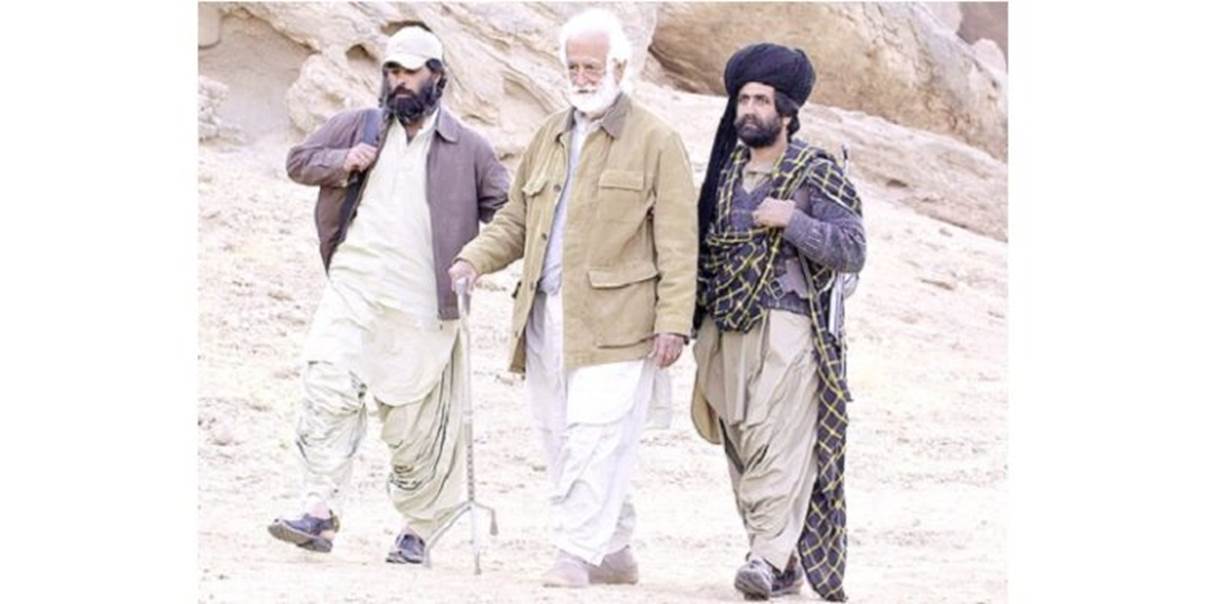
When Giants Walked in Baluchistan
By Dr Akbar Ahmed
American University
Washington, DC

In my first conversation with Nawab Akbar Bugti he cited Ibn Khaldun. I was curious as to where the Nawab would have read the great Arab historian. I asked him. Was it at Oxford University? Perhaps Aitchison College? No, he replied. It was when Pakistanis locked him up in Sahiwal jail.
While posted in Baluchistan, I met a whole range of Baluch leaders. For purposes of this article, I have selected four of the most prominent. The first must of course, given his legendary status, be the Ibn Khaldun-reading Baluch.
Nawab Akbar Bugti
I found it astonishing enough that the Nawab quoted Ibn Khaldun; but what was more astonishing was that he engaged in a sophisticated manner with Ibn Khaldun’s ideas through his own understanding of tribal history and structure.
I had asked him why the Pukhtun who live alongside the Baluch invaded India and gave it several ruling dynasties while the Baluch stayed at home. History knows of the former and hardly the latter. The Nawab gave an answer rooted in anthropology. We deliberately made a choice as leaving home for long periods would have meant loss of our codes and ways of behavior and we would have compromised or even lost our identity. This in essence was Ibn Khaldun’s cyclical theory of history—tribes lose social cohesion or asabiyah over time as they settle in cities.
The Nawab mentioned he had read with interest my book Pukhtun Economy andSociety and would like to discuss it with me. That early conversation shaped our friendship and when I invited him for dinner at the Commissioner’s house in Sibi he insisted that as he was the local he must host me and he invited me to his traditional home in Dera Bugti in the Bugti tribal agency. The story had circulated of how the Nawab deliberately slighted the powerful martial law administrator of Baluchistan. When the general walked by, the Nawab refused to stand up in order to insult him. I had this encounter in mind. What, I thought, if he behaved in a similar way when he met me as Commissioner of the division and senior representative of the government?
When I turned up for dinner, I noted the dozens of fully armed members of the Bugti tribe in the Nawab’s courtyard. I had my own bodyguard with me who were showing signs of anxiety, not knowing what lay ahead.
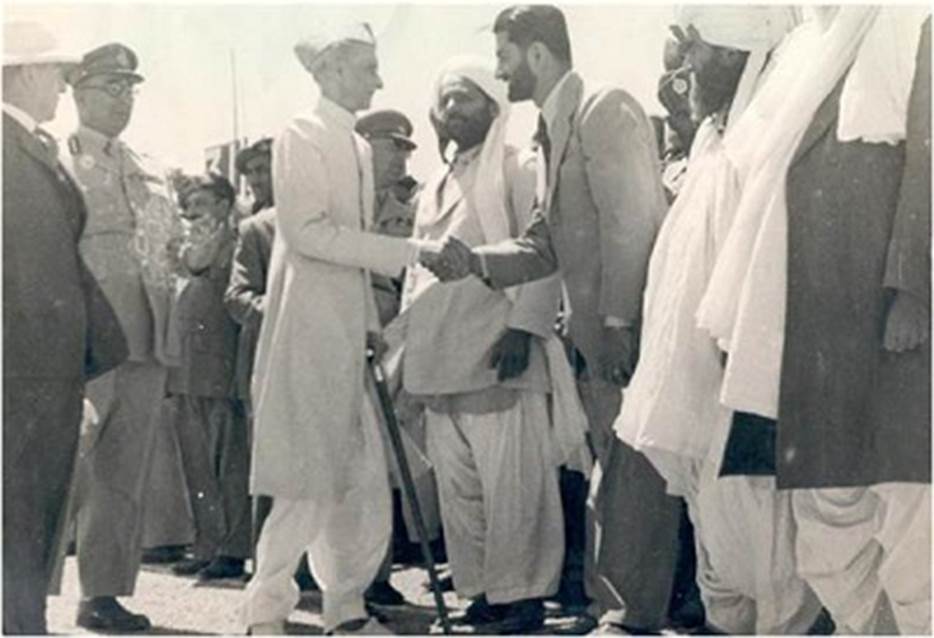
Nawab Akbar Bugti with Quaid-i-Azam Muhammad Ali Jinnah, 1948
Dinner was a fascinating experience. I was the only guest, and I was being treated with great courtesy and honor. The Nawab’s own son, a minister with the provincial government, served us. There was one other guest, the Nawab’s brother, but he kept quiet and did not really join in the conversation. We talked of history, culture, and society late into the night. The Nawab had a brilliant and curious mind. He was keenly aware that he was the tumandar or chief of the Bugti tribe. He had also been Governor of the province and at one stage Defense and Interior minister of the federal government. He told me of his strict control over his diet and regular exercises which kept him fit. Indeed, considering his tall lean frame and swagger, I described him as looking like Sean Connery playing a tribal chief in the 1975 movie, The Wind and the Lion. When dinner was over, he walked with me to the courtyard and opened the door to my official vehicle. Dozens of his men and mine saw that gesture as an act of friendliness and grace.
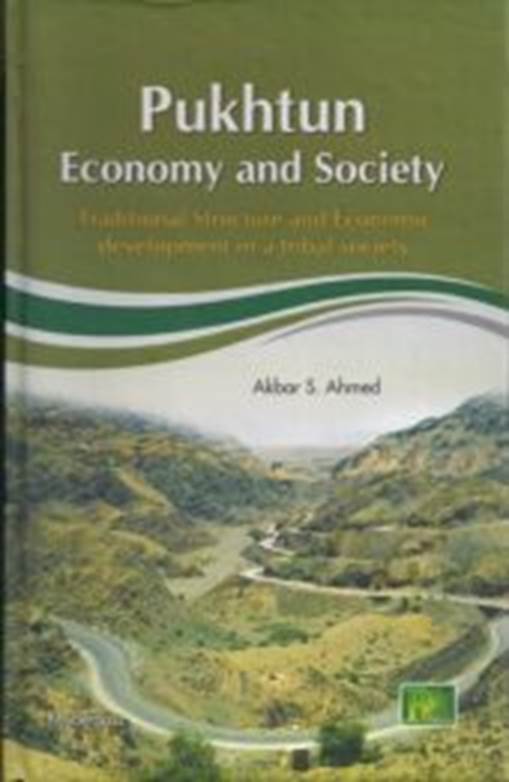
Everything for me in the end returned to law and order. My local officers were having problems with the Bugti tribe. They were conscious that too hard a policy would provoke the Nawab into hostile action and a general state of chaos could ensue with the blowing up of pipelines, kidnapping of officials and cutting of telephone lines. They had to tread carefully. When someone from the Nawab’s family repeatedly committed an egregious act, I saw my chance. I rang the Nawab and put the case to him logically. I said you represent Baluch honor. If someone violates your honor would you permit me to take action so that your honor is preserved. He agreed. Even, I added, if the person was close to you. There was a silence on the phone and after a while he murmured his assent.
I rang my political agent in Bugti Agency and we acted swiftly. After that we never had any law-and-order problem with the Bugti tribe. The word had gone out that things were to be kept calm during my time in office. I had the blessing of the Nawab.
Many years passed and living in the US I often thought about Baluchistan. I read that General Musharraf had locked horns with the Nawab. He promised when he attacked the Nawab, he would not know what hit him. He was right. In his misbegotten Baluch adventure, Musharraf used the latest American weapons to blast the cave in which Nawab had taken refuge with his family and other members of the Bugti tribe. The Nawab's death was once again linked to a question of honor. He had demanded justice for Dr Shazia Khalid who had been posted in Sui headquarters of the Bugti agency and accused a military officer of brutally assaulting and raping her. The Nawab, like the other Bugti, was outraged as he understood the sacrifice Dr Shazia had made in wanting to work in a hardship post to serve women who had virtually no access to female doctors. The Nawab demanded the accused be tried. Officials launched a smear campaign against Dr Shazia and then encouraged her to leave the country. Musharraf showed no sympathy and was to make the outrageous statement that women deliberately get raped to obtain foreign visas. He took the Nawab’s position as a personal affront and a clash of egos developed. The Nawab escaped to the mountains of the neighboring Marri agency and a reign of terror descended in the region with trains and bridges being attacked. It ended with the murder of the Nawab in August 2006. It was an inflection point in the history of Pakistan. The Pakistan media projected Nawab Bugti as an insurgent. The irony was that he was the most pro-Pakistan of the Baluch elders. The Bugti tribe placed a bounty on the head of Musharraf and now, ill and isolated, he lives abroad out of reach of Bugti knives and guns.
Mir Ghaus Buksh Bizenjo
I met Mir Ghaus Buksh Bizenjo, a leader of the Bizenjo tribe, shortly after I arrived in Makran as the Commissioner of the division in the summer of 1985. A leading voice in opposition leftist parties, he had been Governor of the province and was educated at the famous Aligarh University. I arrived in the middle of a major religious crisis. Orthodox religious leaders were giving sermons as far away as Faisalabad and Lahore denouncing the Zikris of Makran as blasphemers. They were plastering posters in bazaars and bus stops which invited Muslims for a jihad to Makran to wipe out what they termed as the false Muslims.
The intelligence agencies informed me that Mir Bizenjo was visiting Makran at this very moment to fish in troubled waters. They suspected he was there to instigate the Zikris against the administration. One spark in Makran would blow the powder keg sky high. Senior officials in Quetta were suggesting I put in an urgent application for military aid to civil power. I refused. Once the military came in, it indicated the failure of the civil administration. Besides, men with guns know only their use to solve problems.
The Zikris were a peaceful community, and I would not permit their slaughter. But I had to think fast. I had to act quickly and take drastic action.
In order to prevent bloodshed, I reached out to Mir Bizenjo who was touring Makran and held great sway with the Zikris. Mir Sahib was a well-known vocal opponent of General Zia- ul-Haq, but I decided to reach out directly to him. I invited him to have dinner with me at the Commissioner’s residence. He appreciated my approach and promised to do everything with his followers to calm the situation. He would persuade them to have confidence in the administration and not respond to any provocation. I alerted my staff and police to turn back any potential trouble- makers flying into Makran from the rest of Pakistan.
Mir Sahib was a sophisticated and wise leader with the famous Baluch sense of humor. We both laughed at our predicament — we may solve the Zikri problem, but we would both be in trouble with our own base. We were right: Zia-ul-Haq demanded an explanation from the Governor of Baluchistan as to why the Commissioner of Makran was meeting a leading anti-government politician. The Governor, who had full confidence in my actions, explained the situation. Mir Sahib also had to explain to his followers why he had a private dinner with the Commissioner. But by then the Zikri crisis was peacefully over.
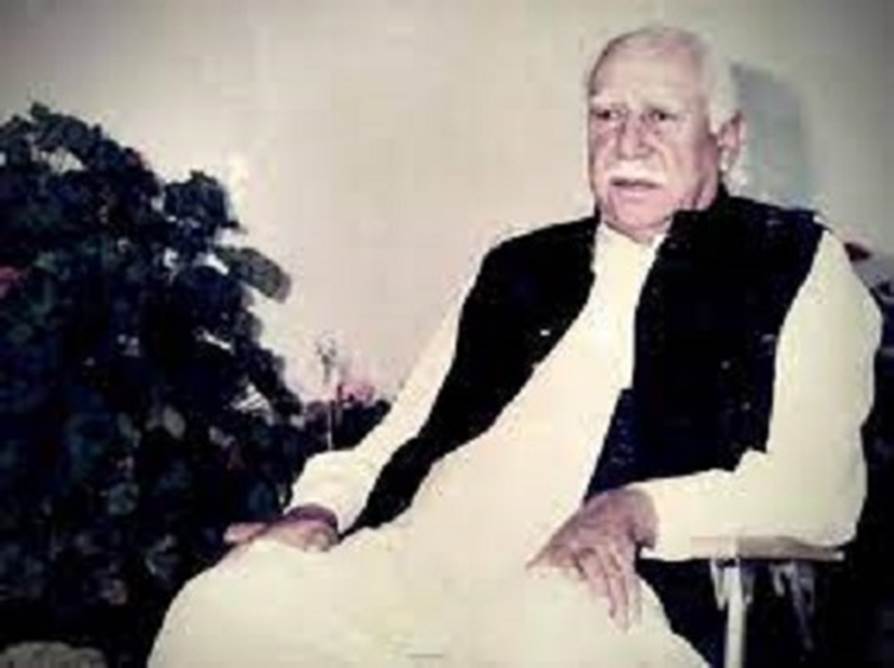
“It was Bizenjo who helped me behind the scene to calm down the people of Makran and enabled me to take swift measures to protect the Zikris,” I later said in an interview to Malik Siraj Akbar, a Baluch journalist from Makran writing for the Dawn (“We don’t have much time left,” December 17, 2011.)
Mir Sahib had the generosity of the true aristocrat. When I was Commissioner of Sibi Division and he was addressing a large gathering in the main bazaar he told the crowd how fortunate they were to have an official like me as Commissioner. Not long after, the intelligence officials called on me to enquire why a well-known anti-Zia nationalist would be praising the Commissioner.
I hastily sent a message to Mir Sahib not to be so kind to me in public as intelligence agencies would report me as being disloyal and I could get in trouble. I imagined Mir Sahib chuckling.
Mir Jafar Khan Jamali
I was privileged to meet Mir Jafar Khan Jamali, the leader of the Jamali tribe, in 1966, the year before he died. He was already a legendary figure in Pakistan history as he was known to be a loyal supporter of the Quaid-i-Azam. Indeed, Mr Jinnah was the lawyer representing Mir Jamali. One of his nephews, Mir Zafarullah Khan Jamali, became Prime Minister of Pakistan. His son Sikander Jamali was my batchmate in the Civil Service Academy and all of us had been invited by Mir Jamali for lunch in his village Rojhan. We travelled to Jacobabad in the Sindh by train and were then transported to Rojhan where Mir Jamali had laid on a grand feast. A huge dining table outdoors bulged with food. There were mountains of meat, rice, and other savories to which his serving men had added items like old clocks.
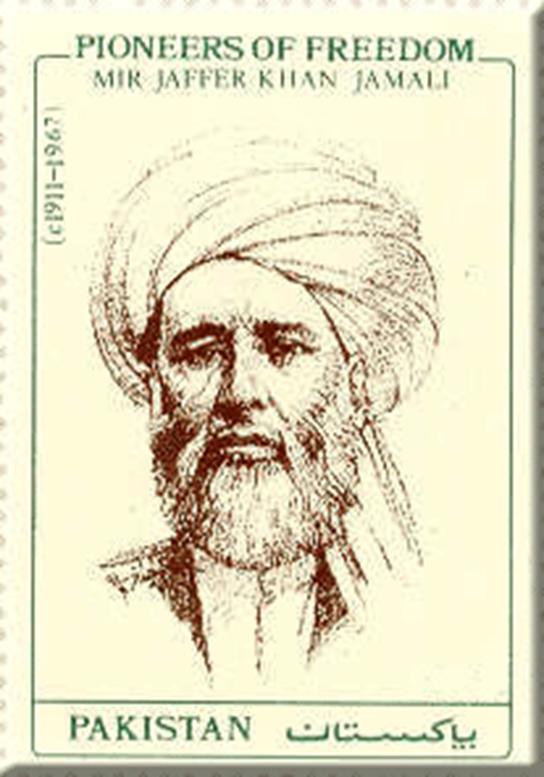
I was brought out from the congregation and stood before the grand old man who asked me to come closer to him so that he could read my forehead. He could divine destiny and said I would do great service for the nation and my name would be known far and wide. That baffled me as it did the others. What service could I perform, I who had just joined the service and knew so little about my country and its culture.
Batch mates are life-long friends but also fiercely competitive and when I sought out my batchmate, the son of the Jamali chief, he seemed out of sorts. I had the impression that he was not happy that I was singled out by his father.
Jam Ghulam Qadir |
|
Jam Ghulam Qadir Khan was the Chief Minister for most of my tenure in Baluchistan. His title came from the fact that the Jams of Las Bela were the rulers of the princely state of Las Bela in southern Baluchistan. It was a historic state going back to the high noon of the Mughal empire.
My primary task as Commissioner was to maintain law and order in my area. Once I was able to quickly establish the authority of the government and maintain law and order my hands were freed for other activities especially the promotion and preservation of local culture.
Cases such as the recovery of the tribal chief who had been kidnapped by a notorious gang operating from the Sind province strengthened my hands and allowed me to implement my favorite schemes. There were several cultural and social initiatives that came to fruition in my time and of which I am particularly proud.
In the center of the Sibi cantonment stood a large imposing building from the time of the British. It was in dilapidated condition. I asked Jam Sahib if I had permission to create the first museum in Baluchistan in this building and whether he would launch it a year from now. He readily agreed although some of his ministers were skeptical. I contacted the archaeological excavations taking place in Mehrgarh and requested the team there to help us with the Sibi Museum. Mehrgarh had established that civilization here was older than previously thought. I flew down to Karachi and met the head of the archaeology department and asked him to help. Karachi held the priceless pieces from Baluchistan and the people of Baluchistan were deprived from seeing them. I wanted the museum to be of the highest international standard so that the Baluch would be proud of it. After a great deal of work, one year later, I invited Jam Sahib and his cabinet to inaugurate the museum. The look of sheer joy and pride on their faces made the enterprise worthwhile. Another pet project of mine was the creation of a public park in the heart of Sibi for use by women and children. Sibi gets extremely hot in the summer months and families are cooped up in houses with nowhere to go. My clerical staff would often complain about their women and children suffering for months. Once again with the backing of Jam Sahib I created a public park of high standard with fountains, walks and landscaping on land that belonged to the local government. Once again, the public was delighted. Another project was the beautiful mosque I built in the corner of the Commissioner’s house which spread over 25 acres. Clerical staff and visitors to the Commissioner’s offices had complained that there was nowhere to pray in the cantonment. When I suggested the idea to the head of the works department, he said our budget was exhausted. So, I organized a stone laying ceremony and invited Jam Sahib as the chief guest. He graciously donated half the budget on the spot. The other half came over the next few months as Baluch leaders vied to follow Jam Sahib’s example. Emma Duncan, an editor of the Economist, described the mosque in her book Breaking the Curfew: A Political Journey through Pakistan (1989). “He (Ahmed) showed me the mosque he had built at the end of the alley: plain white, a front with three columned arches, and arched wooden doors behind, answering the arches on the veranda of his colonial bungalow” (page 136).
I always found Jam Sahib most reasonable although I had my own style of administration. In elections that were held throughout the province, Jam Sahib won in all the divisions except my division. Jam Sahib flew with his civil staff to visit me but did not mention the results. His secretary, however, said how do I explain the fact that Jam Sahib had lost in my division but had won in the others. I replied, just wait for a day or two and you will have the answer in the court cases that will be instituted in every division except mine. No more was said of the matter.
|
I was Commissioner, Quetta Division, when Jam Sahib’s government fell. As is the custom unfortunately in Pakistan he was pilloried in the press. In the meantime, I had been offered the post of the Iqbal Chair at Cambridge University and was preparing to leave Baluchistan. When the people of Quetta wished to host a farewell dinner for me, I requested that they ask Jam Sahib to be the guest of honor. There were some dissenting voices, but I insisted. My host then said if you can persuade him he can join us as he is sulking. I immediately went to Jam Sahib’s house and found that he was very hurt. Can you imagine Commissioner Sahib—he would always call me Commissioner Sahib—they accuse me of taking ten rupees for the admission of girls entering high school. They have reduced my dignity to this point. I do not want to meet any of them in public. I told him I had come to honor him and request him to be the chief guest to the dinner in my honor on behalf of the entire division as I was proceeding to Cambridge University to take up the Iqbal chair. He said he was in no mood to meet people. I said you would be doing me a great honor. He reluctantly agreed and then agreed to accompany me. At dinner we sat him at the head of the table and afterwards he spoke with great warmth about me, repeating the phrase of which he was quite proud. He said, “Commissioner Sahib embodies both ‘beauty and duty.’’’
Discussion
Baluch Islam was lived in the style of the austere Sufis. The leaders and elders, in the ideal, cared for their people, they ensured justice for the community, and they did their best to help the most vulnerable and encourage their students. And, again and again, they acted as the champion of the community. These Baluch virtues reflect the celebrated code of the Baluch which includes bravery, hospitality, wisdom and care for the community. It is a heavy crown to wear. In dangerous and changing times the Baluch chief provided stability and continuity. Even a mediocre chief was better than no chief. Without a chief the tribesmen would say we are orphans. It is precisely this dependence that allows some chiefs to assume the role of the local tyrant and behave badly. In the old days there was little the ordinary tradesmen could do to resist. Today people are much more vocal, and chiefs find themselves at the receiving end of criticism especially through the media and even opposing political parties.
As highly respected as Baluch chiefs were in their own Baluch community, the inverse was true in other parts of Pakistan where they were seen in a negative light as cruel tyrants. Perhaps the most famous, or notorious, of these was Nawab Akbar Bugti. He had become a legend in his own lifetime. His towering personality and formidable appearance allowed him to dominate any gathering. In her book, TheTigers of Baluchistan, a clearly infatuated Sylvia Matheson asked the Nawab how old he was when he killed his first man. Twelve, came the answer.
They were in every sense giants, these Baluch, yet for the rest of Pakistan they were often depicted as dinosaurs, relics from the past. Their time had gone, and they were to be relegated to the dustbin of history. One of the reasons was that few understood Baluch social structure and the role of leadership. The leader was expected to protect his community. Equally important, they were the symbol of the identity of their particular tribe. Their dignity reflected the dignity of the tribe and vice versa. Without them the tribe is attenuated.
They were also great patrons of the minorities. I saw this in the example of each one of the giants I am discussing. Indeed, the Hindu community living among the Bugti looked to the Nawab for patronage. The Nawab even fielded a Hindu member of parliament who called himself Arjun Bugti, that is he had added the name of the Baluch tribe to his Hindu identity. Anyone assaulting these Hindus would have to deal with the Nawab. People from Lahore and Karachi saw these Baluch giants in simplistic Marxist terms, that is ordinary poor folk being exploited by tyrannical and powerful warlords.
Military and political leaders of Pakistan, along with the media, need to show far greater respect to the Baluch, their needs and their culture than they have done so far. The clock is ticking for Pakistan in Baluchistan and a major crisis is approaching. Honor the Baluch, as I have illustrated in these case studies, and they will go to the ends of the earth for you. Treat them with contempt and injustice and they will be unforgiving.
I was privileged to spend time in the land where giants walked. Although there are still outstanding chiefs and leaders in Baluchistan, only the future will tell if they can attain the status and reputation of the giants that I had the good fortune to meet.
(Ambassador Akbar Ahmed is professor of International Relations and holds the Ibn Khaldun Chair of Islamic Studies at the American University, School of International Service. He is also a global fellow at the Wilson Center Washington DC. His academic career included appointments such as Nonresident Senior Fellow at the Brookings Institution; the First Distinguished Chair of Middle East and Islamic Studies at the US Naval Academy in Annapolis, MD; the Iqbal Fellow and Fellow of Selwyn College at the University of Cambridge; and teaching positions at Harvard and Princeton universities. Ahmed dedicated more than three decades to the Civil Service of Pakistan, where his posts included Commissioner in Balochistan, Political Agent in the Tribal Areas, and Pakistan High Commissioner to the UK and Ireland.)

